Affiliate links on Android Authority may earn us a commission. Learn more.
Google Pixel 6a vs Pixel 7a: Is Google's latest mid-ranger worth the extra $150?
Published onJanuary 20, 2024
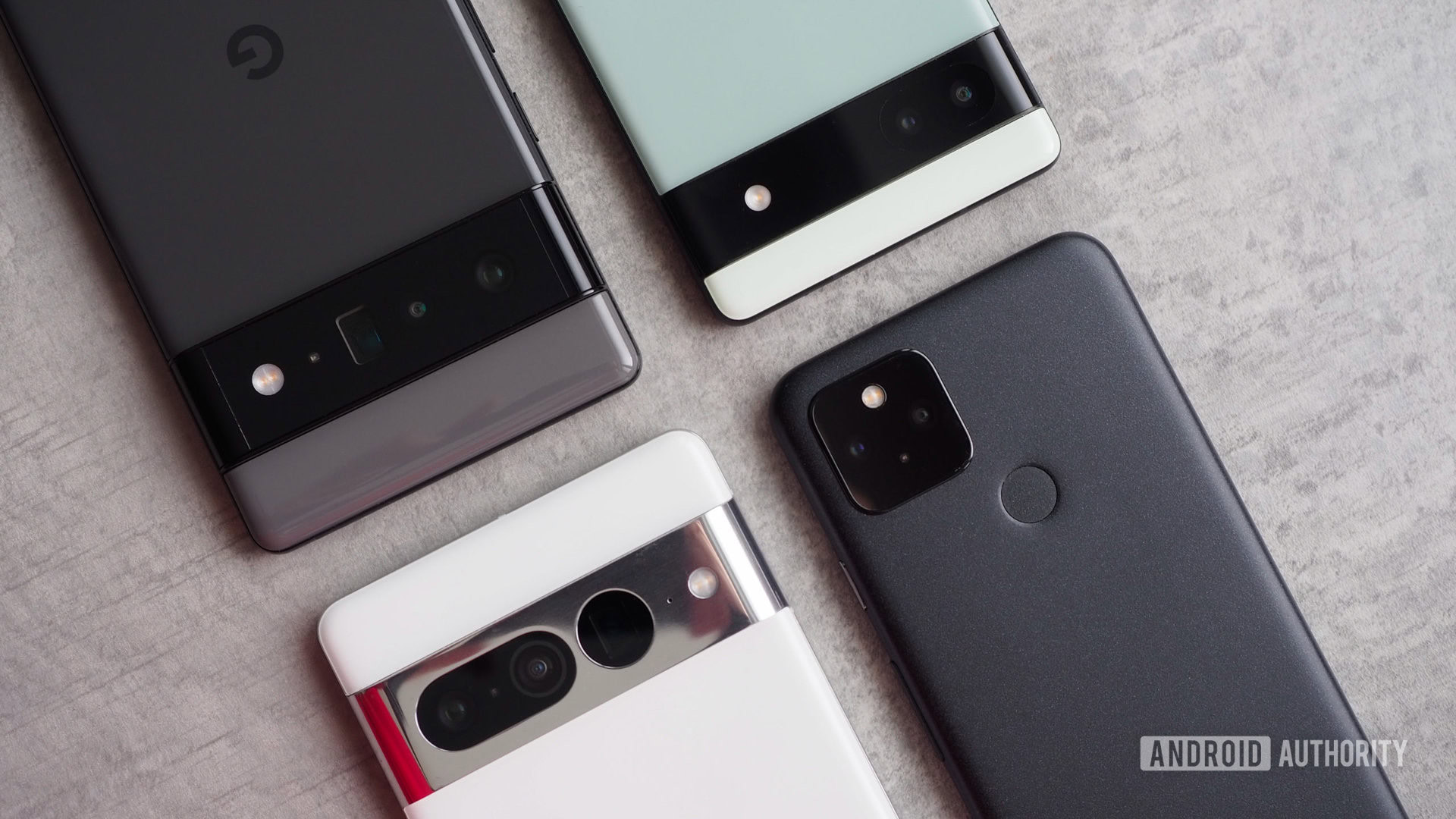
If you’re looking for a good phone without breaking the bank, the Pixel A series is a good place to start. The latest budget phone from Google is the new Pixel 7a, but the Pixel 6a isn’t done just yet. Google is still selling the Pixel 6a alongside the 7a, just at a sharply discounted price. So which one should you get? Join us as we take a close look at the Pixel 6a vs Pixel 7a in this comparison.
Google Pixel 6a vs Pixel 7a: At a glance
Curious how the Pixel 6a and the Pixel 7a compare? Here's a quick summary of the key differences:
- The Pixel 7a has a faster processor than the Google Pixel 6a.
- The Pixel 7a includes wireless charging, but the Pixel 6a doesn't.
- The Pixel 7a has a more powerful camera than the Pixel 6a.
- The Pixel 6a is much more affordable than the Pixel 7a.
Google Pixel 6a vs Pixel 7a: Specs
| Google Pixel 7a | Google Pixel 6a | |
|---|---|---|
Display | Google Pixel 7a 6.1-inch OLED FHD+ resolution (2,400 x 1,080) 20:9 aspect ratio 90Hz refresh rate HDR support Gorilla Glass 3 | Google Pixel 6a 6.1-inch OLED FHD+ resolution (2,400 x 1,080) 20:9 aspect ratio 60Hz refresh rate HDR support Gorilla Glass 3 |
Processor | Google Pixel 7a Google Tensor G2 | Google Pixel 6a Google Tensor |
GPU | Google Pixel 7a Arm Mali-G710 | Google Pixel 6a Arm Mali-G78 MP20 |
RAM | Google Pixel 7a 8GB LPDDR5 | Google Pixel 6a 6GB LPDDR5 |
Storage | Google Pixel 7a 128GB UFS 3.1 | Google Pixel 6a 128GB UFS 3.1 |
Battery and charging | Google Pixel 7a 4,385mAh battery 18W wired charging 7.5W wireless charging No charger in the box | Google Pixel 6a 4,410mAh battery 18W wired charging No wireless charging No charger in the box |
Cameras | Google Pixel 7a Rear: - 64MP main Sony IMX787 0.8μm, ƒ/1.89, 82-degree FoV, 1/1.73-inch, OIS/EIS Super Res Zoom up to 8x - 13MP ultrawide Sony IMX712 1.12μm, ƒ/2.2, 120-degree FoV Front: - 13MP Sony IMX355 1.12μm, ƒ/2.2, fixed focus, 95-degree FoV | Google Pixel 6a Rear: - 12.2MP main Sony IMX363 1.4μm, ƒ/1.7, 77-degree FoV, 1/2.55-inch, OIS/EIS - 12MP ultrawide Sony IMX386 1.25μm, ƒ/2.2, 114-degree FoV Front: - 8MP Sony IMX355 1.12μm, ƒ/2.0, fixed focus, 84-degree FoV |
Video | Google Pixel 7a Rear: 4K at 30/60FPS 1080p at 30/60FPS Front: 4K at 30FPS | Google Pixel 6a Rear: 4K at 30/60FPS 1080p at 30/60FPS Front: 1080p at 30FPS |
Audio | Google Pixel 7a Stereo speakers Dual mics No 3.5mm port | Google Pixel 6a Stereo speakers Dual mics No 3.5mm port |
Security | Google Pixel 7a In-display fingerprint Titan M2 chip 5 years' security updates | Google Pixel 6a In-display fingerprint Titan M2 chip 5 years' security updates |
Sensors | Google Pixel 7a Proximity sensor Ambient light sensor Accelerometer Gyrometer Magnetometer Barometer | Google Pixel 6a Proximity sensor Ambient light sensor Accelerometer Gyrometer Magnetometer Barometer |
Water resistance | Google Pixel 7a IP67 | Google Pixel 6a IP67 |
Connectivity | Google Pixel 7a Wi-Fi 6 (802.11ax) Wi-Fi 6E (6GHz) in the US Bluetooth 5.3 NFC support Dual SIM (single nano-SIM and eSIM) Google Cast GPS, GLONASS, Galileo, QZSS, BeiDou | Google Pixel 6a Wi-Fi 6 (802.11ax) Wi-Fi 6E (6GHz) in the US Bluetooth 5.2 NFC support Dual SIM (single nano-SIM and eSIM) Google Cast GPS, GLONASS, Galileo, QZSS, BeiDou |
Software | Google Pixel 7a Android 13 with Pixel UI | Google Pixel 6a Android 12 with Pixel UI Upgradeable to Android 13 |
Materials | Google Pixel 7a Gorilla Glass 3 on the front Aluminum frame Polycarbonate back | Google Pixel 6a Gorilla Glass 3 on the front Aluminum frame Polycarbonate back |
Dimensions and weight | Google Pixel 7a 152.4 x 72.9 x 9.0mm 193g | Google Pixel 6a 152.2 x 71.8 x 8.9mm 178g |
Colors | Google Pixel 7a Arctic Blue, Chalk, Charcoal, Coral | Google Pixel 6a Sage, Chalk, Charcoal |
The Pixel 7a is a great phone — check out our Pixel 7a review for our full thoughts — but it’s not exactly a massive departure from its predecessor. It’s still a plastic phone with an aluminum frame, just with a bit more polish. The same goes on the inside; this phone is all about refinement.
Last year’s Pixel 6a brought Google’s Tensor to the mid-range, outperforming pretty much every other phone in its price range. The Pixel 7a builds on this with the new Tensor G2. There are several changes on paper, but basically, expect a slightly faster experience with improved machine learning over the first gen.
One thing we didn’t like about last year’s Pixel 6a was that it tended to overheat. Can we expect better with the Tensor G2? We wouldn’t count on it. Not only did the Pixel 7 and Pixel 7 Pro get pretty hot from time to time in our previous tests, but our initial tests with the Pixel 7a also show not much has changed.
We noticed it would get pretty warm, not only when pushing the phone, but also during long sessions streaming Bluetooth. It never became unusable, but it is clear that heat dissipation and control remain weaker points for Google. It’s also worth mentioning that most of the heat seems to travel into the alloy frame rather than the plastic back. This can actually make it more difficult to hold comfortably, especially when you are also outdoors and dealing with direct sunlight.
On the bright side, the performance was absolutely solid. The added RAM and improved Tensor G2 chip lead to an experience that feels almost identical to the Pixel 7.
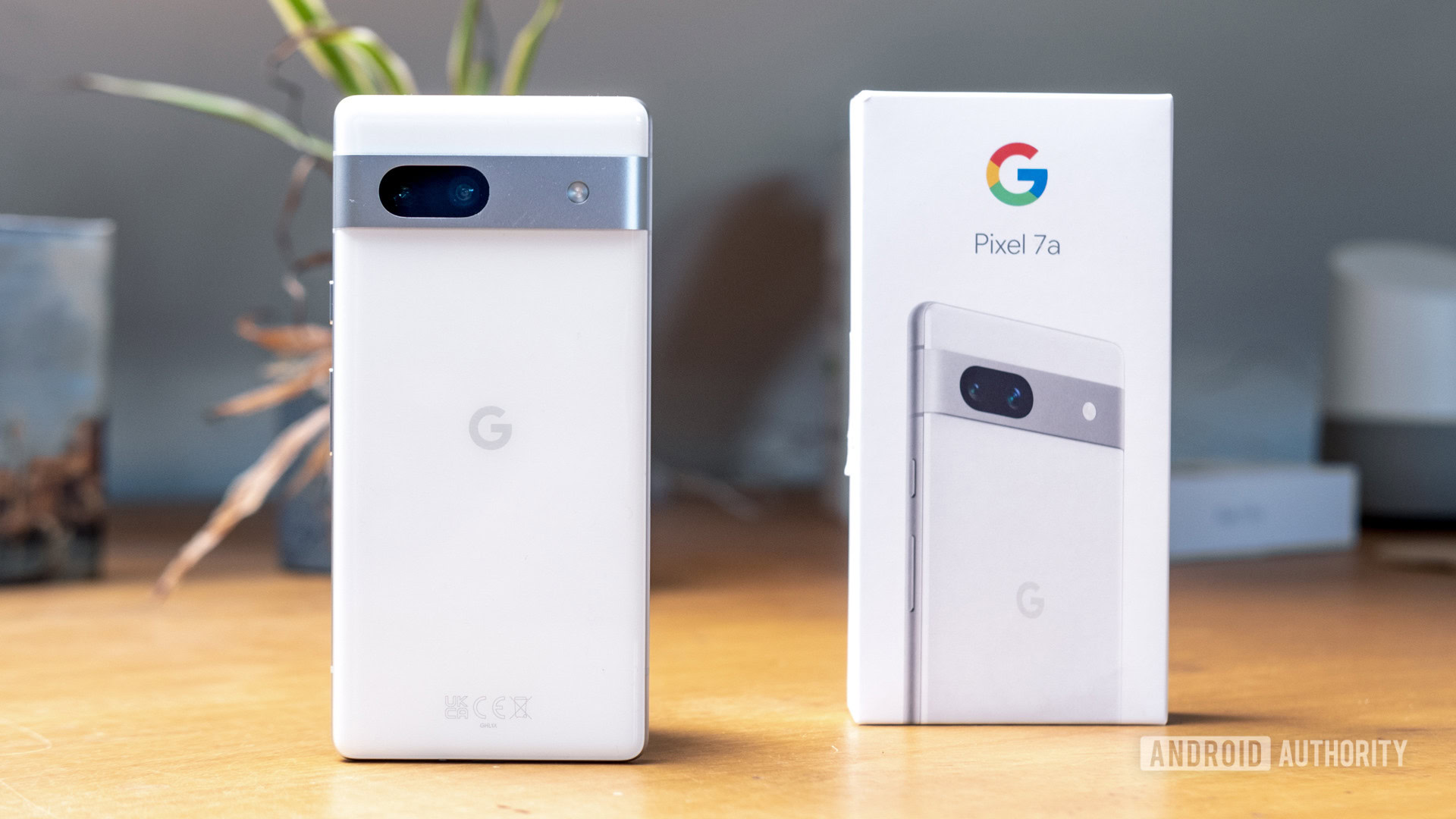
Moving past the SoC, Google sticks to the same storage configurations on both Pixels, with 128GB of storage. There is an upgrade to 8GB of RAM, as opposed to just 6GB of RAM on the Pixel 6a. The display size remains the same this year, with both rocking 6.1-inch OLED screens.
On the plus side, the Pixel 7a does offer a 90Hz refresh rate, which is a jump from the 60Hz fresh rate on the 6a. It’s actually off by default as the phone is locked to 60Hz, but you can toggle it to 90Hz from within the settings.
Although this isn’t as exciting as the 120Hz rate found on the Galaxy A54 5G, it’s still a big step forward for Google’s budget offerings. The Pixel 6a’s lower refresh rate was one of the few downsides we ran into during our review last year, so it’s nice to see Google moving forward here.
The rest of the differences mostly come down to the camera and charging capabilities, which we’ll get to shortly. But let’s talk quickly about software. The Pixel 6a shipped with Android 12 but is currently upgradeable to Android 13. You’ll get effectively the same Android 13 experience with the Pixel 7a.
So are there any software differences at all? Not really, other than the Pixel 6a is a year old. That means it will only get two more years of Android OS updates and four more years of security patches. The Pixel 7a is brand new, so it’s only getting started on its commitment to three years of updates and five years of security patches. Whether that’s worth an extra $150 premium over the Pixel 6a? Probably not, but it’s worth considering.
Google Pixel 6a vs Pixel 7a: Size comparison
If you were to hold up the Pixel 6a and Pixel 7a in each hand, could you tell the difference? Yes, though only if you’re really paying attention. As we noted in our review, you could easily close your eyes and get around both phones without any differences, but there are still some small tweaks.
The Pixel 7a features a sleeker, metallic camera panel on the rear that replaces the glass panel from the Pixel 6a. On the front, you’ll have an even harder time telling them apart. Even the footprint remains nearly the same, though the Pixel 7a is fractionally bigger. You’ll be hard-pressed to notice, though, and both phones weigh just 178g.
One way you can tell the difference is the color choices. While the two phones both come in chalk and charcoal, the Pixel 7a swaps out the 6a’s Sage color for a new Arctic Blue colorway.
Even if they don’t look that different, they do feel differently. We have to say this is the best feeling Pixel A device to date. It might look similar to the 6a, but the added weight makes it feel more durable. The polished design also helps it stand out a bit further.
Google Pixel 6a vs Pixel 7a: Camera
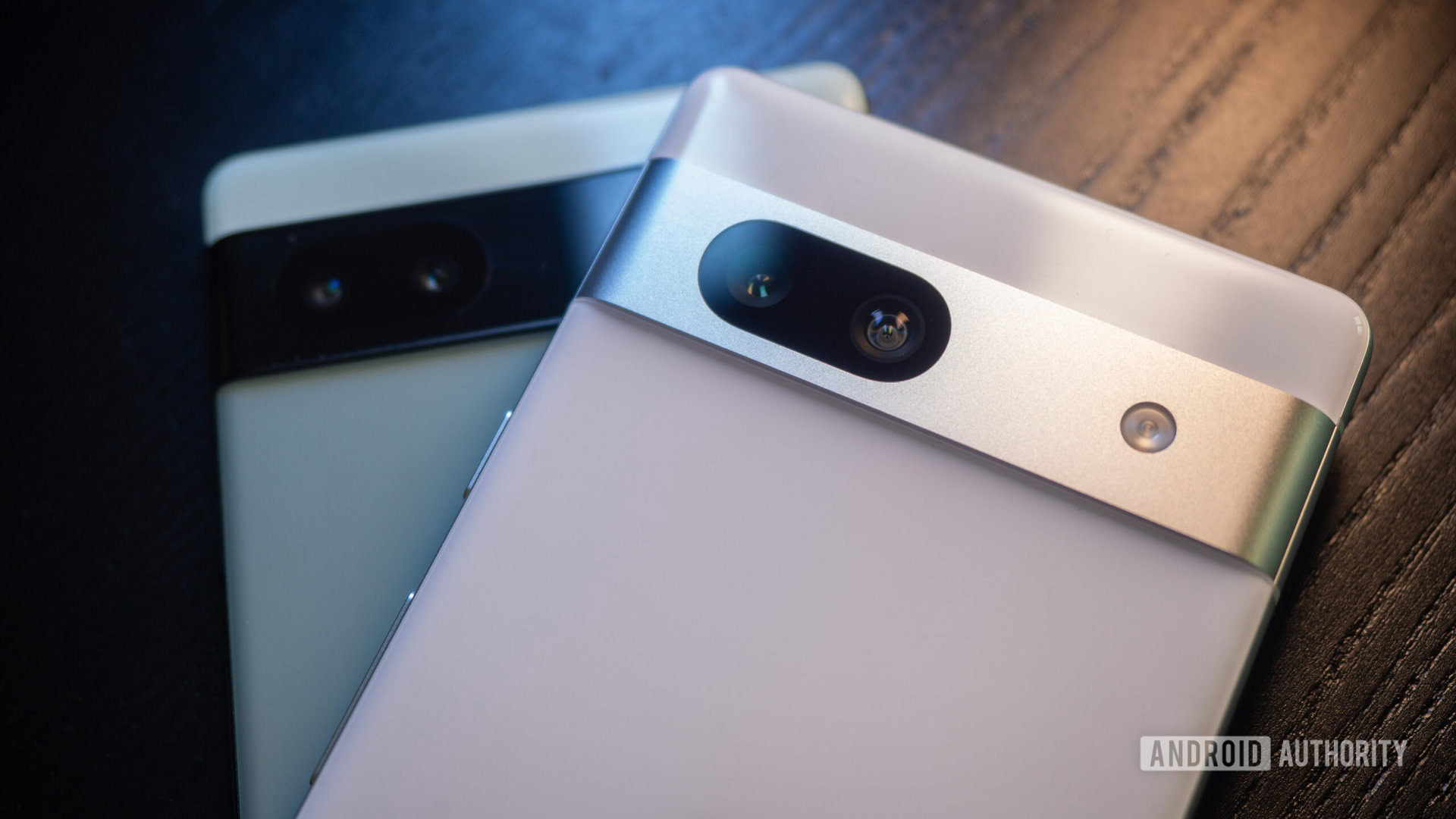
It would be fair to say we enjoyed the Pixel 6a’s camera immensely during our time with it. It had accurate color recreation and decent natural bokeh effects. Really every shot we took was more than passable, and the camera often came close to delivering a flagship experience despite its budget asking price. Still, we couldn’t help but feel like the camera package was a little behind the times compared to the jump seen by mainline Pixels. Thankfully the Pixel 7a is making a significant leap forward on paper.
The Pixel 7a trades in the 6a’s 12MP Sony IMX363 main shooter for a more powerful 64MP Sony IMX787 main shooter. The ultrawide lens also got a bump from 12MP to 13MP and now has a 120-degree field of view. Although that’s a big bump up, the new shooter actually has smaller pixels at 0.8μm pixels versus 1.4μm pixels on the 12.2MP Pixel 6a camera. Of course, the higher pixel count and pixel binning ensure images look better than ever.
The Pixel 7a has a pretty solid camera on paper, but what about the actual experience? The Pixel 7a does a solid job with colors, giving a lifelike color profile to its images. While saturation can be a bit higher than we’d like in some images, it never feels unnatural either.
We do wish zoom was better with the Pixel 7a, but it’s not worse than the 6a, either. You now get 8x zoom versus 7x zoom on the Pixel 6a. In reality, you can’t really tell much difference as neither phone is particularly great at zoom. You can safely hit around 4x zoom, but after that, the image quality drops so much we really don’t recommend zooming further.
The Pixel 7a camera has great color accuracy and is easily one of the best budget cameras to date.
While we spent most of our review time with the Pixel 7a’s 6MP main shooter, the 13MP ultrawide cam is also a thrill to use. You can fit more into your shots than the Pixel 6a, thanks to the upgraded field of view. One small downside is that you don’t get a macro mode like you would with the Pixel 7.
Turning to the selfie camera, the Pixel 7a jumps to a 13MP shooter, away from the 8MP shooter found on the Pixel 6a. We actually enjoyed the Pixel 6a’s selfie camera experience, as it had decent details for things that mattered like faces and clothing. Thankfully the Pixel 7a continues this solid experience and is even more accurate.
Is the Pixel 7a a better camera experience than the 6a front and back? Absolutely, though it’s not necessarily as massive a gulf as you might judge just by sensor size. The new Pixel 7a comes closer to the camera experience offered on the Pixel 7, though not to quite the same degree. Nevertheless, it’s definitely one of the best camera phones you can buy if you’re on a budget.
Google Pixel 6a vs Pixel 7a: Battery and charging
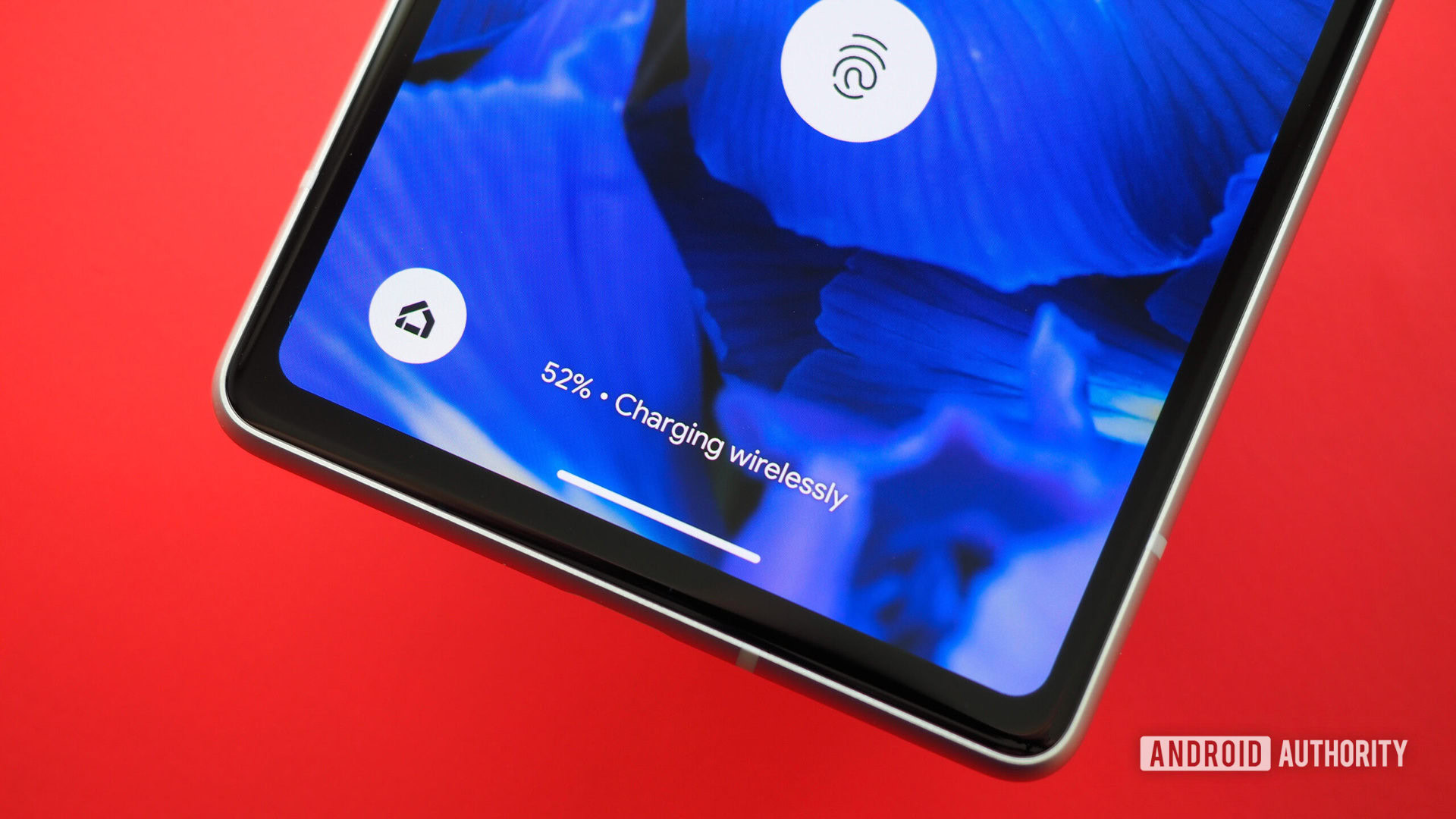
The one sore spot for the Pixel 6a is its battery life. While Google claims it can handle over 24 hours on a single charge, our own experiences don’t match up with this. We found that you’d often be left with just around 10% battery life after a normal day’s use — power users will find even 10% to be hard to achieve, though.
If you were hoping to see a bigger battery with the Pixel 7a, we’re sorry to disappoint you. The Pixel 7a has a 4,385mAh battery, which is actually 25mAh less than its predecessor. The good news is that the Tensor G2 has better power efficiency, so it might not make a massive difference.
We are still doing deeper battery testing on the Pixel 7a but based on our initial testing, the battery life isn’t dramatically different from the Pixel 6a. During our review period, we’d go to bed with around 20% charge, which is a bit better than the Pixel 6a. Of course, more intense days of use could see it drop to as little as 4% before it was time to put it on the charger for the night.
Wireless charging isn't common in the mid-range, so it's a nice extra for the Pixel 7a. Unfortunately, it takes four hours to charge up!
So battery life is better, but it’s still not much to write home about. At least for now, it seems battery life will continue to be the biggest downside to the Pixel A series. On the plus side, Google is throwing in some improvements to its charging technology. While the Pixel 6a and 7a will both have just 18W wired charging, the Pixel 7a is the first Pixel A that has support for wireless charging. In fact, wireless charging is practically non-existent in this price segment.
Wireless charging is a nice and somewhat unexpected extra at this price, but keep in mind Google had to cut costs somehow. The Pixel 7a might charge wirelessly, but it does so at a relatively slow 7.5W. Compared to the 15W+ range on flagships, this isn’t fast, but still, it’s a nice talking point for the Pixel A series and helps Google set its budget flagship apart from its competitors.
We played around with wireless charging during our review process and found it worked fine; just the slowness made it easier to stick to wired charging most of the time. In our tests it took around 4 hours to go from zero to full. If you only charge at night, this probably won’t matter to you. If you’re in a hurry, you are much better off sticking to a wired charger.
One last thing. Neither the Pixel 6a nor Pixel 7a include a charger, so you’ll need to buy a third-party wall charger if you don’t have a spare sitting around already.
Google Pixel 6a vs Pixel 7a: Price
- Pixel 6a
- 6GB/128GB: $349
- Pixel 7a
- 8GB/128GB: $499
The Google Pixel 6a originally debuted last year for $450. A year later and Google’s pricing has become a bit more complicated. While the new Pixel 7a is actually $50 more than its predecessor, the Pixel 6a isn’t going anywhere. Google will continue to sell the 6a as its ultra-budget option, with a new price tag set for just $349.
As for the Pixel 7a? You can buy it now for $500. There’s not a lot of difference in terms of storage, but the Pixel 7a does come with an extra 2GB RAM. Both phones are well-priced, it just comes down to what you’re looking for.
Google Pixel 6a vs Pixel 7a: Is the Pixel 6a worth the upgrade?
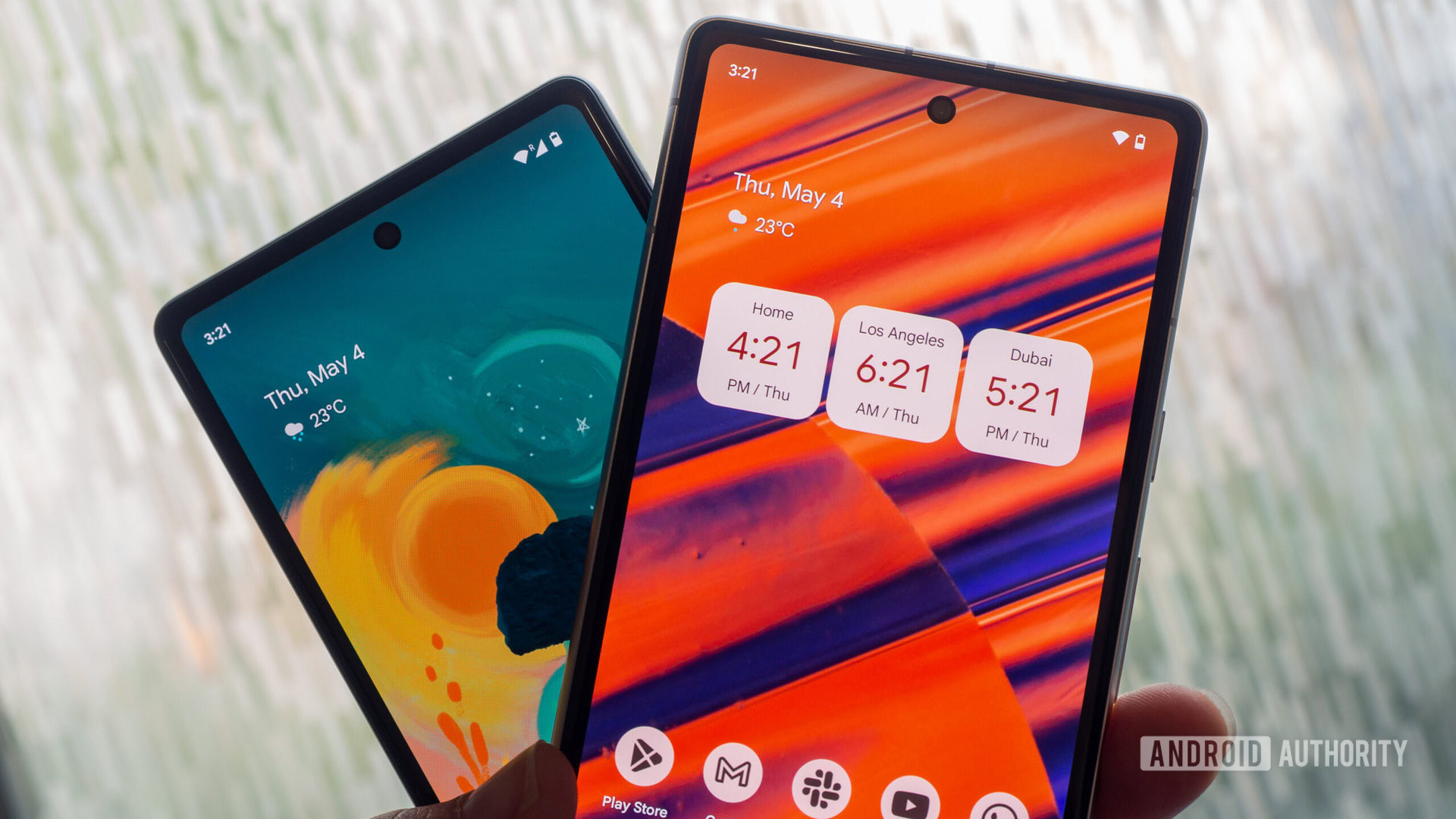
The Google Pixel 6a is a sold budget device but is the Pixel 7a a better buy? Honestly, it really depends. The Pixel 7a is very similar to its predecessor, refining what made that phone great. That means you now get a higher-resolution display, a better camera, a more refined design, and the addition of wireless charging. Is that really worth $150 more? Only you can answer that.
Keep in mind the Pixel 7a isn’t your only option if you want an upgrade over the Pixel 6a. The Pixel 7 can often be found for a sharp discount now, hovering around $600 or less. There’s also the new Pixel 8, which retails for $699 but can also be found on sale from time to time. The Pixel 8a is also likely only around a half away now if it happens. There are rumors to suggest they might skip a year before releasing the Pixel 8a this time around.
Only interested in the Pixel 7a or 6a? If you are absolutely looking to save money while having a competent device that will last you years, the Pixel 6a is a great option. On the other hand, the Pixel 7a will have a year more OS and security updates and has a more upgraded experience that is much closer to the flagship experience you’d get with the Google Pixel 7 series.
Would you rather buy the Pixel 7a, or save money with the Pixel 6a?
What about those who already own the Google Pixel 6a? Should you make the move? Honestly, no. If you already own the Google Pixel 6a the jump between the two is really too small to spend any cash on. We’d recommend holding on to the Pixel 6a for a few more years.

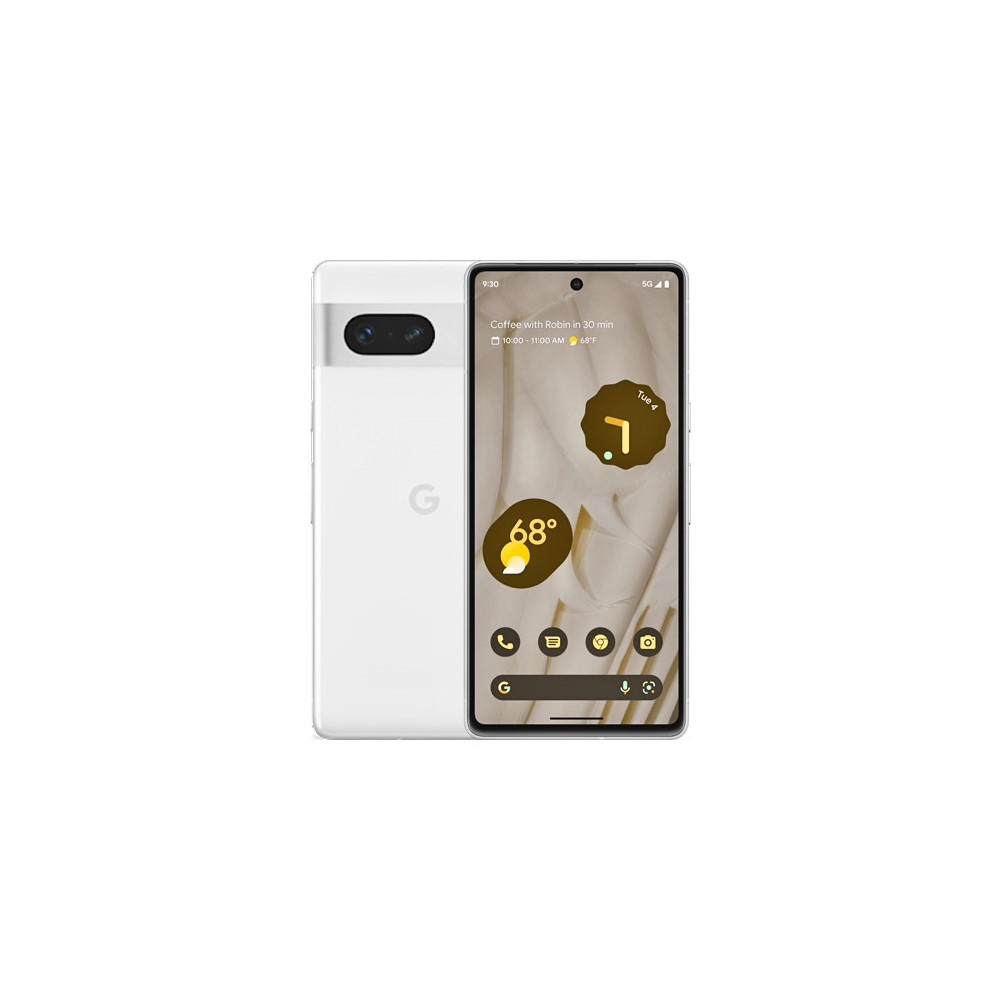
Solid performance and plenty of RAM
Improved 90Hz display
FAQ
Unfortunately, no modern Pixel device supports the headphone jack. In order to connect wired headphones, you’ll need a USB to headphone jack adapter.
Yes, 5G is supported on both the Pixel 6a and Pixel 7a. You can learn more about the 5G standards used in our Pixel 5G guide.
Yes, both phones have IP67 ratings. You can learn more about what that means in our Pixel 7a waterproofing guide.
Google has never really embraced expandable storage in its phones, so, unfortunately, the answer remains no for both. You won’t find microSD on any Pixel phone.
Yes, Magic Eraser is available on the Pixel 6a, Pixel 7a, as well as the full Pixel 6 and 7 family.
While the answer is somewhat subjective, yes. At just $350, you get a very similar experience without breaking the bank. Furthermore, that $150 savings can pay for cases, chargers, and any other accessories you might need.
Honestly, it depends on if you really need a phone now. Waiting until closer to the Pixel 8’s launch could result in better discounts, even if you aren’t interested in buying the Pixel 8. Learn more in our quick Pixel 7a vs Pixel 8 rumor comparison.